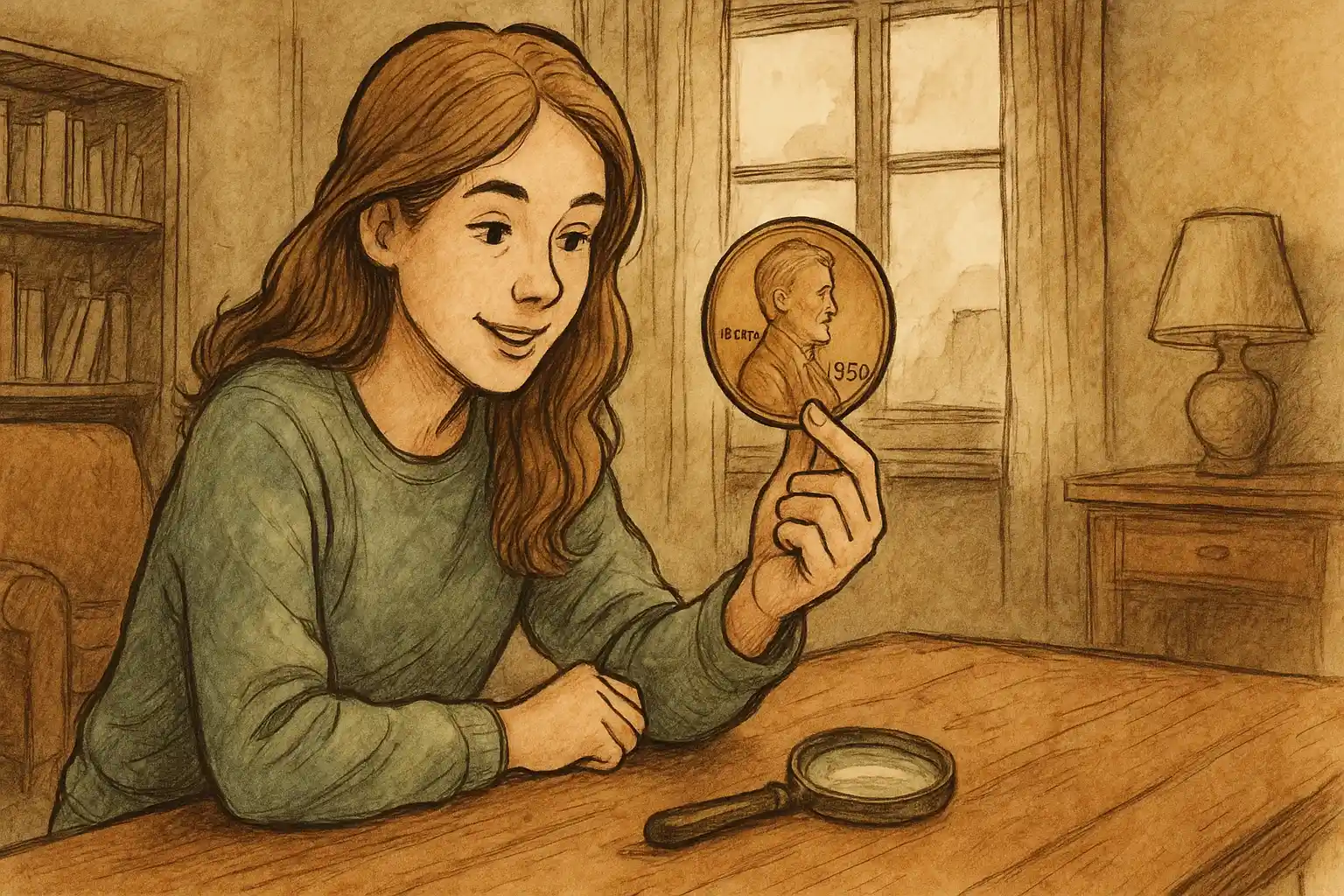The Best Retro Games Remastered

Dive into the world of remastered classics with Game Guides. Discover how the best retro games have been rejuvenated for modern platforms, blending nostalgic gameplay with contemporary enhancements. E...
Real Worth of D Marks and Errors in 1959 Pennies

Discover the real worth of 1959 D pennies and rare error coins. Learn how mint marks, condition, and striking mistakes impact value, with tips for identification, verification, and storage to maximize...
Light Spectrum Effect on Plants: Photosynthesis and the Role of Different Light Colours

Learn why understanding the full light spectrum is essential for plant growth and flowering....
The allure of gaming taps into the very essence of human psychology and shows how we perceive, interact with and find meaning in these digital areas.
Our daily lives, replete with responsibilities and stressors, demand an outlet for release and relaxation. Virtual worlds present an inviting alternative, where the constraints of reality melt away, and the boundaries of imagination reign supreme. Players find solace, a place where they can shed their real-world personas and adopt new identities being free from judgment and external pressures. This transition is about self-discovery and empowerment, where players navigate through fantastical landscapes, confront challenges that, while daunting, are within their control to overcome.

Games function as sanctuaries, not just because they offer an escape, but because they provide a controlled environment where outcomes are, to a large extent, predictable and influenced by the player's actions. This predictability is contrasted with the often unpredictable nature of real life.
Another cornerstone of gaming's psychological appeal is the inherent drive for achievement. Games are meticulously designed labyrinths of challenges and quests, each obstacle surmounted bringing a sense of accomplishment. This journey, from novice to master, mirrors our innate desire for growth and improvement.
The progression systems embedded within games are crafted to trigger the reward circuits of the brain. Each level conquered, achievement unlocked, or boss defeated acts as a tangible measure of progress. This cycle of challenge and reward sustains engagement and imbues players with a sense of purpose within the game's universe.
Contrary to the stereotype of the solitary gamer, these platforms facilitate the formation of communities bound by common interests and goals. Players forge friendships, collaborate and compete.
The social aspect of gaming enhances the enjoyment of the game and provides a support system where players share strategies, celebrate victories, and commiserate over defeats. The sense of belonging to a community contributes significantly to the game's allure, offering a sense of identity and camaraderie that might be elusive in the player's offline life.
Gaming's impact extends beyond emotional and social benefits; it also offers cognitive rewards. Engaging with complex game mechanics and narratives stimulates the brain, enhancing problem-solving skills, memory, and attention. This mental exercise is akin to a workout for the brain, with the added advantage of being highly enjoyable.
The strategic thinking and quick decision-making required in many games can have tangible benefits in real life. For example, action games improve spatial awareness and reaction times, puzzle games bolster logical thinking and pattern recognition, and strategy games enhance planning and resource management skills. This cognitive enhancement is a testament to gaming's potential as a tool for mental sharpening, challenging the misconception of gaming as a mere pastime.
Virtual worlds in gaming are not merely backdrops for gameplay; they are intricately designed universes that offer players an immersive experience unlike any other. These realms are crafted with an attention to detail that can rival the complexity of the real world, providing a level of immersion that is both captivating and, at times, utterly transformative. But what is it about these virtual environments that draws us in so deeply?
One of the key attractions of virtual worlds is the sense of immersion they provide. Through realistic graphics, sound design, and interactive elements, players can feel as though they are truly part of another universe. This immersion is further deepened by the autonomy players are granted within these worlds. Unlike the real world, where choices can be limited by various constraints, virtual worlds offer endless possibilities. Here, players can shape their destiny, make impactful decisions, and explore to their heart's content, experiences that are both empowering and exhilarating.
Game design is an art form that plays a critical role in the psychology of gaming. It's the game designers who lay down the blueprint of the virtual experience, weaving together the elements that make a game engaging, challenging, and rewarding. Let's explore some of these design techniques and how they influence player behavior.

Rewards are a fundamental aspect of game design, acting as incentives for players to continue their journey. These rewards can vary widely, from in-game currency and items to new character abilities and levels. The anticipation of rewards activates the brain's reward system, encouraging players to push forward and creating a loop of engagement that's hard to break. This system taps into our inherent desire for positive reinforcement, making the gaming experience both satisfying and addictive.
Challenges are what make games interesting. They provide obstacles that players must overcome, adding tension and excitement to the gameplay. These challenges can take many forms, from puzzles and strategic planning to physical reflex tests and endurance trials. By overcoming these obstacles, players not only experience the joy of achievement but also develop their skills, making the victory all the more rewarding. Game designers carefully balance these challenges to ensure they are tough enough to be engaging but not so difficult as to be discouraging, keeping players in a state of flow.
Narratives in games serve as more than just context for the action; they create emotional connections between the player and the game. A well-crafted story can make a game memorable and compelling, driving players to see the journey through to its conclusion. Characters, plot twists, and storytelling techniques are employed to engage the player's emotions, making them care about the outcomes of their actions. This emotional investment keeps players returning to a game, eager to see how the story unfolds.
In the world of gaming, achievements hold significant psychological weight. They serve as milestones of progress, symbols of skill and dedication. These virtual accolades, often recognized within gaming communities, can boost self-esteem and validate the time and effort invested in the game. The pursuit of achievements stimulates goal-oriented behavior, encouraging players to set and achieve targets, a mindset that can positively influence personal and professional aspects of one's life.
Achievements in gaming also serve as a form of social currency. They can be a source of prestige within the gaming community, fostering a sense of competition and camaraderie. Sharing these achievements on social media or within the game itself can lead to recognition and social bonding, further enhancing the game's appeal. This dynamic illustrates the complex interplay between individual achievement and social interaction, a hallmark of the psychological depth of gaming.
Gaming's appeal goes beyond the cognitive and social; it touches something deeper within our emotional landscape. The worlds and characters that game designers create can evoke a wide range of feelings, from joy and excitement to sadness and empathy. This emotional connection is a powerful draw, keeping players invested in the game far beyond the surface level of gameplay.
Many games today are lauded for their storytelling prowess, able to evoke emotional responses comparable to those elicited by literature and cinema. Through narrative-driven gameplay, players become emotionally invested in the characters and their fates, experiencing their joys, sorrows, triumphs, and defeats as if they were their own. This connection deepens the gaming experience, transforming it from a mere pastime into a medium capable of delivering profound emotional and moral lessons.
Another aspect of gaming's psychological appeal is the safe space it offers for emotional expression and exploration. In the real world, expressing vulnerability or exploring certain facets of our identity can be daunting. Virtual worlds provide a sandbox for these explorations, free from the fear of judgment or real-world repercussions. Players can experiment with different identities, scenarios, and moral choices, gaining insights into their own values, desires, and emotional makeup.
The challenges within games also offer a form of emotional resilience training. Facing and overcoming obstacles in a game can mirror the challenges we face in life, providing a safe, low-stakes environment to develop coping strategies and perseverance. This aspect of gaming can be particularly empowering, teaching us that setbacks are not endpoints but opportunities for growth and learning.
As the gaming industry continues to evolve, so too does our understanding of its psychological impacts. Researchers are increasingly interested in the potential of games as tools for education, mental health therapy, and socialization. The future of gaming promises even more immersive experiences with the advent of virtual reality and augmented reality technologies, opening new avenues for psychological exploration and therapeutic applications.
Gaming's role in mental health therapy is an area of growing interest. Games specifically designed to address psychological issues, such as anxiety and depression, are being developed and tested. These games employ principles of cognitive-behavioral therapy, mindfulness, and emotional regulation, offering a complementary tool for traditional therapeutic methods. The potential for games to serve as a form of therapy highlights the positive impact gaming can have on our psychological well-being.
The psychology of gaming is a multifaceted field, reflecting the complex interplay between human cognition, emotion, and social interaction. As we've explored, games offer more than just entertainment; they provide spaces for growth, learning, and emotional exploration. From the escapism they afford to the achievements they commemorate, the social connections they foster, and the emotional journeys they facilitate, games are a testament to the human desire for experience, exploration, and expression.
As gaming continues to grow and evolve, so too will our understanding of its impact on our psychological landscape. By embracing the positive aspects of gaming while remaining mindful of its challenges, we can fully appreciate the rich, complex, and ultimately human experience that gaming offers. Whether for escapism, education, therapy, or simply the joy of play, games hold a unique place in our cultural and psychological lives, offering a mirror to our desires, fears, and dreams.
The Best Retro Games Remastered

Dive into the world of remastered classics with Game Guides. Discover how the best retro games have been rejuvenated for modern platforms, blending nostalgic gameplay with contemporary enhancements. E...
Real Worth of D Marks and Errors in 1959 Pennies

Discover the real worth of 1959 D pennies and rare error coins. Learn how mint marks, condition, and striking mistakes impact value, with tips for identification, verification, and storage to maximize...
Light Spectrum Effect on Plants: Photosynthesis and the Role of Different Light Colours

Learn why understanding the full light spectrum is essential for plant growth and flowering....